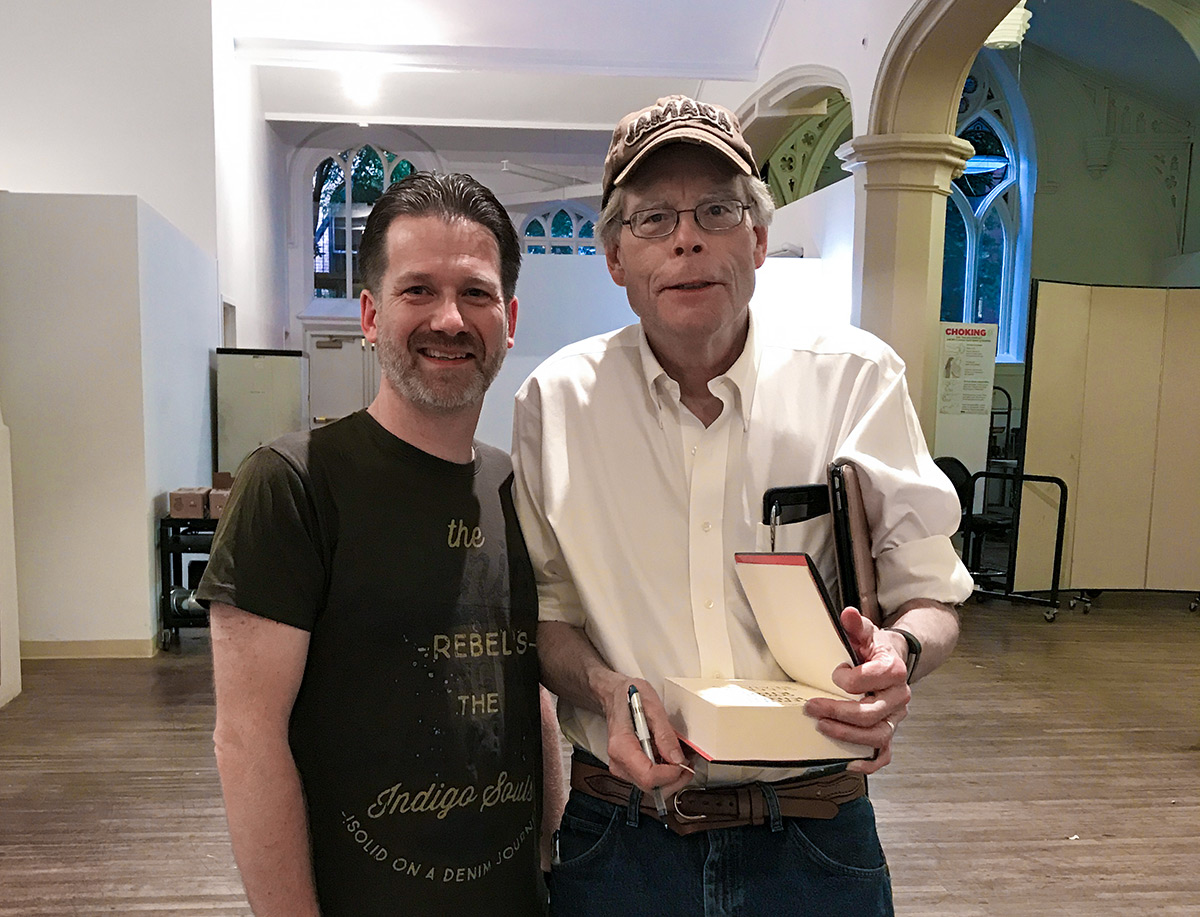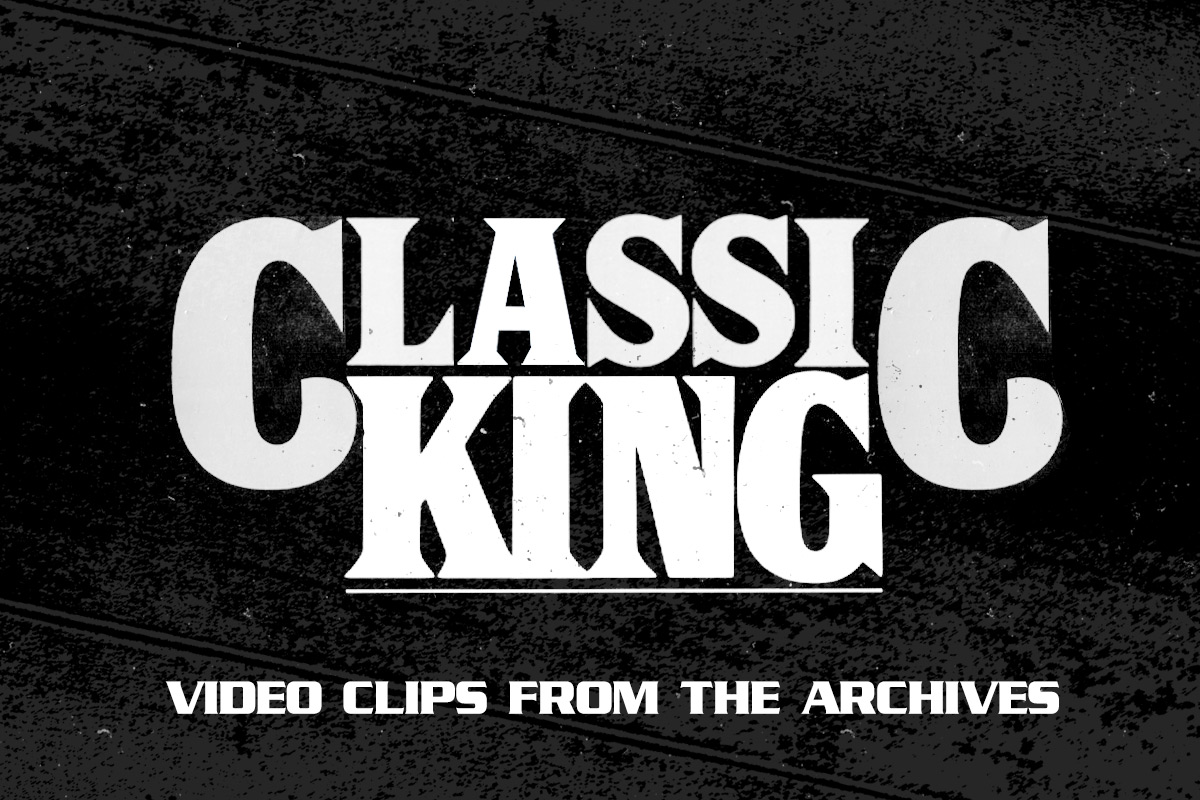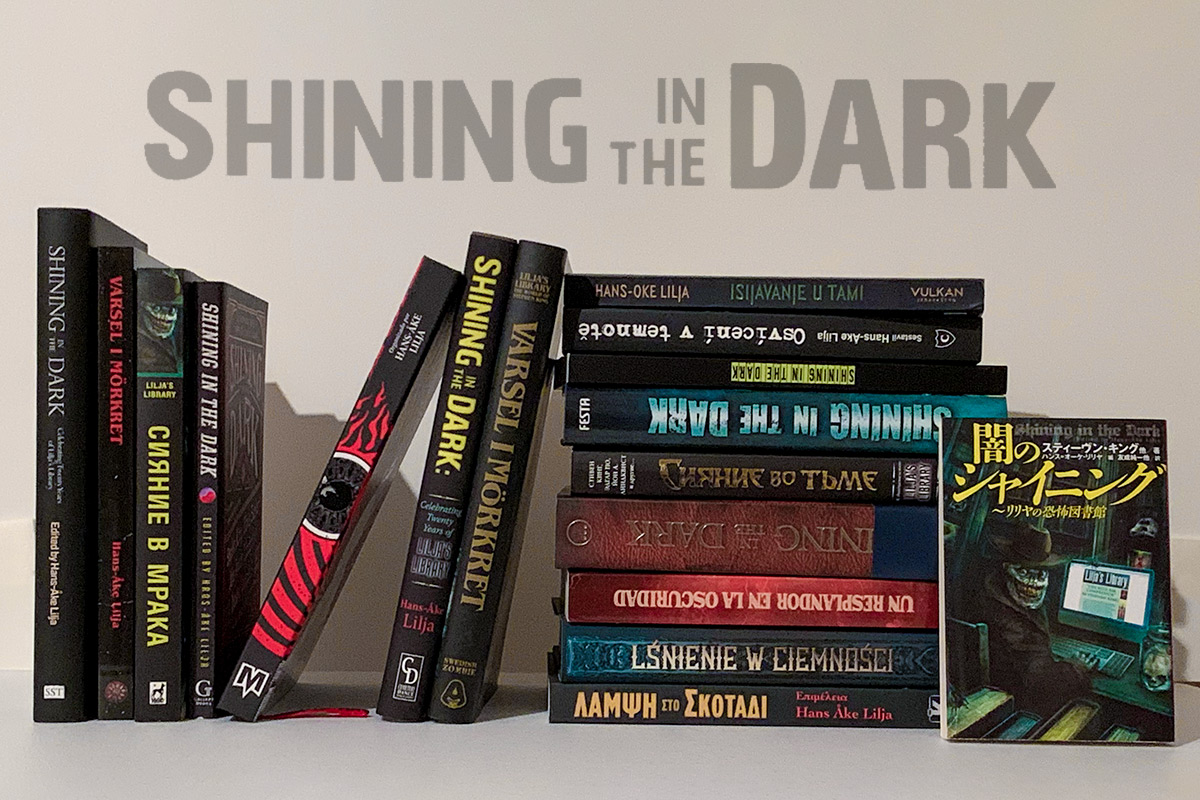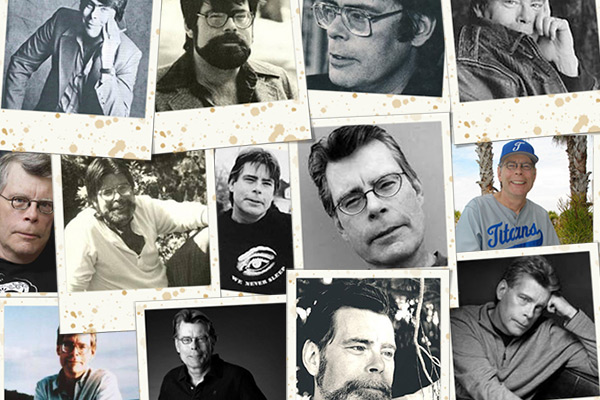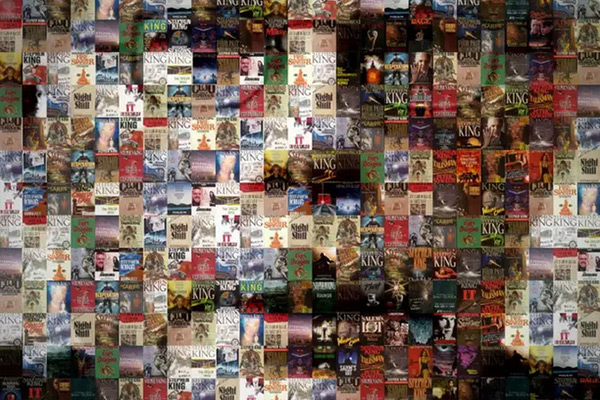Eli Roth
Posted: October 5, 2020
_
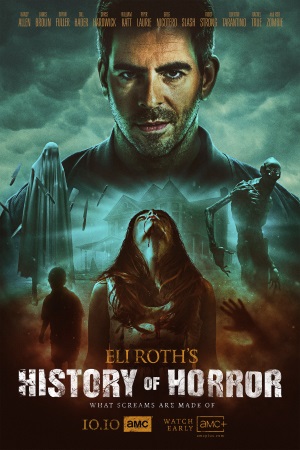 "Eli Roth's History of Horror" season 2 premiers this Saturday (Oct. 10) on AMC and I got a chance to talk to him about the show, horror and Stephen King. Here is what he had to say.
"Eli Roth's History of Horror" season 2 premiers this Saturday (Oct. 10) on AMC and I got a chance to talk to him about the show, horror and Stephen King. Here is what he had to say.Lilja: I have seen season 2 (and season 1) of "History of Horror" and it's a great show about a very interesting subject. How did you get the idea to gather horror icons and make a TV show out of them talking about horror?
Eli Roth: I had been wanting to make a show like this for years, one that showed horror films in their historical context, and how they were reflecting the fears at the time and what makes them so relevant all these years later. Why are we still talking about "Reanimator" and why do kids still watch the original "King Kong?" Why are there still so many Freddy Kruger and Michael Meyers tattoos? But more than that, I felt we were losing the creators of these iconic films and I wanted to capture their stories for people to enjoy for generations. I'm lucky enough to have met and become friendly with many of my idols, and I was with H.G. Lewis at a film festival in 2011 and he told the funniest stories and shortly after he died. Then we lost George Romero, Wes Craven, Tobe Hooper. When they die, their stories go with them, but the movies only grow in popularity. No other genre inspires the kind of fan loyalty that horror does. Comedies don't always age well, dramas you can enjoy but nobody's getting tattoos of them. I'm not knocking these other genres but a great horror movie can still be enjoyed 100 years from now, like "Nosferatu" or "Vampyr."
Lilja: Was it hard to get all the big names we see in the show to take time and talk to you? Judging from what they do for a living they should have begged you to be on the show.
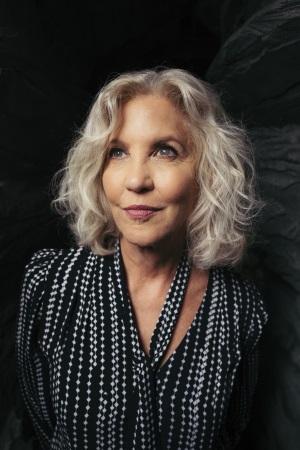 Eli Roth: Haha, believe me, I did. Also, if they're not on the show, trust, me, I begged. A lot of the times they want to but they're on location working on their projects. Stephen King I really had to beg and am so grateful he took the time, because he does not do a lot of interviews. We had the best time nerding out and I finally got to ask him questions I've been waiting a lifetime to ask. Season two was easier because we had season one to show the episodes, and there was a direct correlation between the episodes airing and people rewatching the old movies and new fans watching for the first time. You could see Dee Wallace beaming when her social media lit up with people saying how much they loved "Cujo," and directors hearing so many other people praising their work that might have been dismissed at the time they made it felt great for everyone. Horror films, if they do their job, provoke us and bring up all kinds of uncomfortable feelings. The critics often don't want to support them, lest they themselves be seen as endorsing whatever gruesome acts the films contain. So a lot of the times for years the movies are trashed, but over time, people slowly admit they love them, then the fans support them, then the tattoos, shirts and fan art explodes, and then they're genre classics. Nobody was talking about "Reanimator" this way when it first came out except the horror fans but now it's a subversive masterpiece.
Eli Roth: Haha, believe me, I did. Also, if they're not on the show, trust, me, I begged. A lot of the times they want to but they're on location working on their projects. Stephen King I really had to beg and am so grateful he took the time, because he does not do a lot of interviews. We had the best time nerding out and I finally got to ask him questions I've been waiting a lifetime to ask. Season two was easier because we had season one to show the episodes, and there was a direct correlation between the episodes airing and people rewatching the old movies and new fans watching for the first time. You could see Dee Wallace beaming when her social media lit up with people saying how much they loved "Cujo," and directors hearing so many other people praising their work that might have been dismissed at the time they made it felt great for everyone. Horror films, if they do their job, provoke us and bring up all kinds of uncomfortable feelings. The critics often don't want to support them, lest they themselves be seen as endorsing whatever gruesome acts the films contain. So a lot of the times for years the movies are trashed, but over time, people slowly admit they love them, then the fans support them, then the tattoos, shirts and fan art explodes, and then they're genre classics. Nobody was talking about "Reanimator" this way when it first came out except the horror fans but now it's a subversive masterpiece. Lilja: What is it with horror that makes it possible to do a show like "History of Horror"? I mean you don't see the same show about romantic comedies, right?
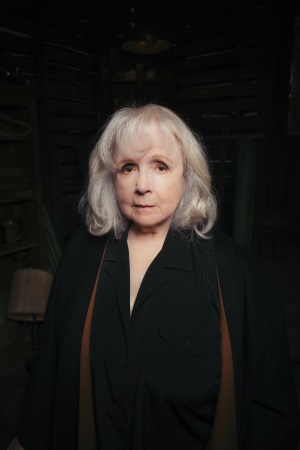 Eli Roth: Horror is timeless. There's something about monsters we all love as kids, because they reflect the worst parts of ourselves and allow us to deal with them. Look at Grimm's fairy tales, children being baked in ovens and eaten, and they're still popular hundreds of years later. Children love "King Kong," even though the effects are from 80 years ago. Emotionally, we all love that character and feel for him at the end when he dies. Comedies don't always age well. Some do, but we've all had the experience of showing someone 10 or 20 years younger than us a movie we think is hilarious and they're just bored and not really laughing and we think "why isn't this funny to them the way it was to us?" Slapstick always works, like The Three Stooges, but a lot of films are funny but have to be enjoyed at the time they're made because they're referencing the pop culture of that moment. Fears change over time, but the basic fear never changes. Fear of death, loss, disease, losing control of your body, losing a loved one and wanting them back - these are timeless themes. And the monsters are the forbidden things that hide in the dark, and people love having tattoos of them to show their affection for them. Halloween has only grown bigger over the years, it used to be just for children, but people clearly need to be someone else for a night and express a side they repress for society. Modern audiences may watch a few classic dramas, but it's really the film geeks who watch them over and over, modern audiences find them boring because they don't reflect a world they know. But horror - we all have this morbid curiosity. You hear about someone being hacked up with a chainsaw and it's repulsive but at the same time we all are curious to see what that looks like. Most women I know watch horror films as training films for how they would escape a psycho killer. We go into that with Mary Harron, who directed one of the most iconic horror films of recent years, "American Psycho." People love Patrick Bateman, yet he's the most sick maniac of all time. But he's so damn charming and good looking, and that's the point - nobody really cares what he does because he's so good looking, which is a comment on the value we as a society place on looks. It's brilliant.
Eli Roth: Horror is timeless. There's something about monsters we all love as kids, because they reflect the worst parts of ourselves and allow us to deal with them. Look at Grimm's fairy tales, children being baked in ovens and eaten, and they're still popular hundreds of years later. Children love "King Kong," even though the effects are from 80 years ago. Emotionally, we all love that character and feel for him at the end when he dies. Comedies don't always age well. Some do, but we've all had the experience of showing someone 10 or 20 years younger than us a movie we think is hilarious and they're just bored and not really laughing and we think "why isn't this funny to them the way it was to us?" Slapstick always works, like The Three Stooges, but a lot of films are funny but have to be enjoyed at the time they're made because they're referencing the pop culture of that moment. Fears change over time, but the basic fear never changes. Fear of death, loss, disease, losing control of your body, losing a loved one and wanting them back - these are timeless themes. And the monsters are the forbidden things that hide in the dark, and people love having tattoos of them to show their affection for them. Halloween has only grown bigger over the years, it used to be just for children, but people clearly need to be someone else for a night and express a side they repress for society. Modern audiences may watch a few classic dramas, but it's really the film geeks who watch them over and over, modern audiences find them boring because they don't reflect a world they know. But horror - we all have this morbid curiosity. You hear about someone being hacked up with a chainsaw and it's repulsive but at the same time we all are curious to see what that looks like. Most women I know watch horror films as training films for how they would escape a psycho killer. We go into that with Mary Harron, who directed one of the most iconic horror films of recent years, "American Psycho." People love Patrick Bateman, yet he's the most sick maniac of all time. But he's so damn charming and good looking, and that's the point - nobody really cares what he does because he's so good looking, which is a comment on the value we as a society place on looks. It's brilliant. Lilja: And the question everyone asks. Why do we love horror so much?
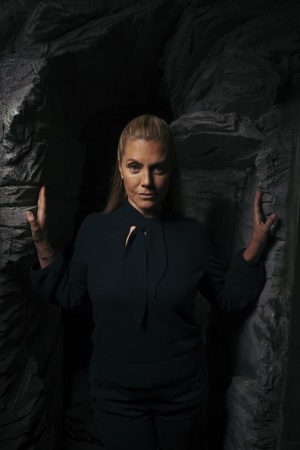 Eli Roth: In daily life, we can't be afraid. We're all terrified, terrified of disease, the division in the country, our futures - will we ever go to a concert again - all of that. Collapse of society, loss of control. We can't just sit around paralyzed, but we have to deal with these feelings. Horror movies give us all a format to deal with them and express them. People are uncomfortable talking about race, but everyone can talk about the dad in "Get Out" when he said he'd vote for Obama for a third term if he could. Just the look on the character Chris' face when he says that is priceless, and we're all cringing and laughing because we've seen that happen in our own lives. So that's when a horror movie is great, when it's fun and scary but really strikes a chord. That said, I love all horror, seeing the stuff you're not supposed to. Stephen King said it best, "Even the worst horror movie is still fuckin great." That's why I really enjoy all horror, even what fans consider bottom of the barrel, they will always have my heart just for existing. We all know we're going to die, we have no idea when, and the movies help us satisfy that curiosity of what it would look like to go in a certain way. Also there's the afterlife - it can be fun or it can be terrifying. What happens if we're stuck here and we can't move on? Is that what happens to everyone or just a few who are so angry they can't leave? Grimm's fairy tales are still relevant 300 years later, I always believed horror films are fairy tales for adults. Also, they're the most fun to watch with a group of friends. You feel like you survived an ordeal together.
Eli Roth: In daily life, we can't be afraid. We're all terrified, terrified of disease, the division in the country, our futures - will we ever go to a concert again - all of that. Collapse of society, loss of control. We can't just sit around paralyzed, but we have to deal with these feelings. Horror movies give us all a format to deal with them and express them. People are uncomfortable talking about race, but everyone can talk about the dad in "Get Out" when he said he'd vote for Obama for a third term if he could. Just the look on the character Chris' face when he says that is priceless, and we're all cringing and laughing because we've seen that happen in our own lives. So that's when a horror movie is great, when it's fun and scary but really strikes a chord. That said, I love all horror, seeing the stuff you're not supposed to. Stephen King said it best, "Even the worst horror movie is still fuckin great." That's why I really enjoy all horror, even what fans consider bottom of the barrel, they will always have my heart just for existing. We all know we're going to die, we have no idea when, and the movies help us satisfy that curiosity of what it would look like to go in a certain way. Also there's the afterlife - it can be fun or it can be terrifying. What happens if we're stuck here and we can't move on? Is that what happens to everyone or just a few who are so angry they can't leave? Grimm's fairy tales are still relevant 300 years later, I always believed horror films are fairy tales for adults. Also, they're the most fun to watch with a group of friends. You feel like you survived an ordeal together. Lilja: You cover a lot of areas in both this second season and the first, is there areas that you are still interested in covering in maybe a third season?
Eli Roth: Absolutely. The topics are endless, we had a tough time narrowing it down and there are still so many more movies I want to explore and deep dive into.
Lilja: What kind of horror do you prefer, both as a viewer and as a filmmaker?
Eli Roth: I think everyone loves the era they grew up in, when they first fell in love with the genre. When it stops being traumatic and starts becoming fun. Then it gets addictive, and you know it's not hurting you, it's giving you a thrill. Those films you saw when you were a kid into your adolescence. Kids today will say "It" and "It Chapter 2" are the greatest movies ever made. Others will say it's the "Annabelle" films, and to others it's "Scream" and "The Ring." To me, it's anything from the early 80s. Those early 80s slasher movies got me, especially the holiday themed ones. Give me cheap red credits and ominous synthesizer music and practical gore and you got me.
Lilja: Stephen King is interviewed a lot, what is your relation to his work?
Eli Roth: Stephen King inspires me every day. He has created the most iconic works since Edgar Allen Poe and he still just keeps going. He never stops. I love his book "On Writing," I follow his lessons in that book to the letter. But so many of his works inspired me, both as novels and as film adaptations. And "Creepshow," a real masterpiece. We go into that one this season, loved talking about that with him. As a kid it was the greatest night at the movies I'd ever had.
Lilja: I just have to ask you. At one time you were set to direct Stephen King's "Cell". What happened?
Eli Roth: You know, to tell what happened some people will be slighted or insulted and that's just part of the film business. In movies, you try your best and sometimes it all comes together and sometimes it doesn't, no matter how hard you try. This just wasn't in the cards, that's all I can say. David Lynch nailed the weirdness and randomness of movies with "Mulholland Drive." You go to the ranch at midnight and the Cowboy gives you the password and then you say it or the whole thing falls apart. It feels like that all the time on larger movies. The smaller ones you have more control.
Lilja: If you could pick any of his (Stephen King's) stories to adapt, which would you pick and why?
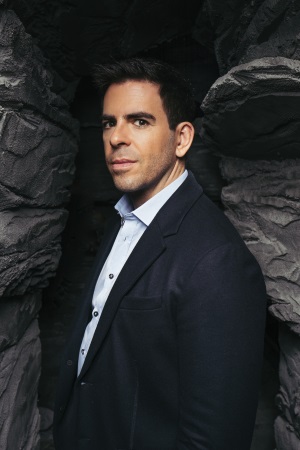 Eli Roth: I love "Beachworld," I've always wanted to film that one. And "The Reaper's Image." I don't think they're feature films but I love those stories so much I still think of the Delver mirror every time I pull a cloth off a mirror. It's one of those stories I never got out of my head. Also "Survivor Type" inspired me to write "Cabin Fever." I wrote it first as a short story called "Flood." People were trapped in a cabin and they get flooded in and then they get sick and I copied the journal-entry style of the last survivor dying off. That cracked open a part of my brain that gave me permission to write that way. I loved my short story so much I decided to adapt it into a movie, just removing the flood element, but having the group of friends go as far away from civilization as they can to misbehave and then the isolation backfiring on them after they've pissed off the locals. It's one of those things that I never really consciously think about, but really thinking back to being 19 years old with my new world processor, when I sat down to write the story that became "Cabin Fever," it was "Survivor Type" that gave me format to express myself. It's funny, I've never talked about that, but only because it's so engrained in me I forgot. So thank you.
Eli Roth: I love "Beachworld," I've always wanted to film that one. And "The Reaper's Image." I don't think they're feature films but I love those stories so much I still think of the Delver mirror every time I pull a cloth off a mirror. It's one of those stories I never got out of my head. Also "Survivor Type" inspired me to write "Cabin Fever." I wrote it first as a short story called "Flood." People were trapped in a cabin and they get flooded in and then they get sick and I copied the journal-entry style of the last survivor dying off. That cracked open a part of my brain that gave me permission to write that way. I loved my short story so much I decided to adapt it into a movie, just removing the flood element, but having the group of friends go as far away from civilization as they can to misbehave and then the isolation backfiring on them after they've pissed off the locals. It's one of those things that I never really consciously think about, but really thinking back to being 19 years old with my new world processor, when I sat down to write the story that became "Cabin Fever," it was "Survivor Type" that gave me format to express myself. It's funny, I've never talked about that, but only because it's so engrained in me I forgot. So thank you. Lilja: Thank you so much for doing this interview.
Eli Roth: My pleasure.

